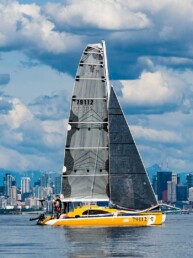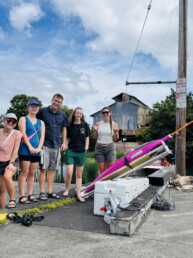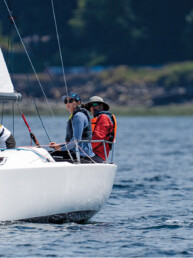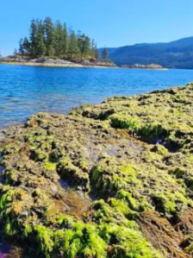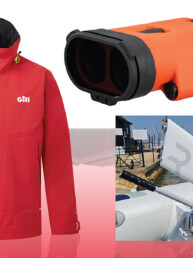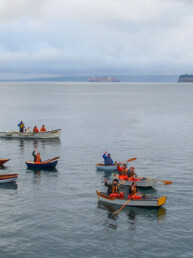The event’s first-ever day-long postponement for weather didn’t derail the hardy crews headed up the Washington coast for the Pacific Northwest Offshore Race.
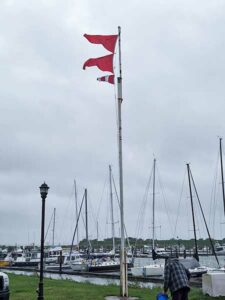
The 46th running of the PNW Offshore was set to start on Thursday May 12, 2022. Variations to the start and finish locations over the years haven’t changed the nature or the premise of the event — sail from the Columbia River up the Pacific coast of Washington and into the Strait of Juan de Fuca. This year’s edition once again had the starting venue of Ilwaco, and the finish was in Port Angeles (a springtime deviation from the original destination of Victoria, BC).
On the eve of the race, the forecast was for gale force winds at the start and the race organizers contemplated a postponement. The next morning, racers hovered around the hospitality room, waiting for the 7 a.m. go/no-go decision. After the race committee reviewed the bar and wind conditions, they made the call to postpone the start until Friday; a first for the PNW Offshore sailing event.
Friday morning the conditions were better. The racers snaked their way from the marina in Ilwaco to the start line, with a little over 10 knots of wind astern. The race started on time at 10:05 a.m. in that easterly wind. This allowed the fleet to beam reach right up the coast of Washington.
Rage — a Wylie 70, the largest, fastest boat in the fleet — jumped out to an early lead, jib reaching up the coast, followed by the bulk of the PHRF racing fleet flying spinnakers. On Nordic Sun II, my Hylas 44, which I was sailing in the cruising class, we opted to also jib reach up the coast.
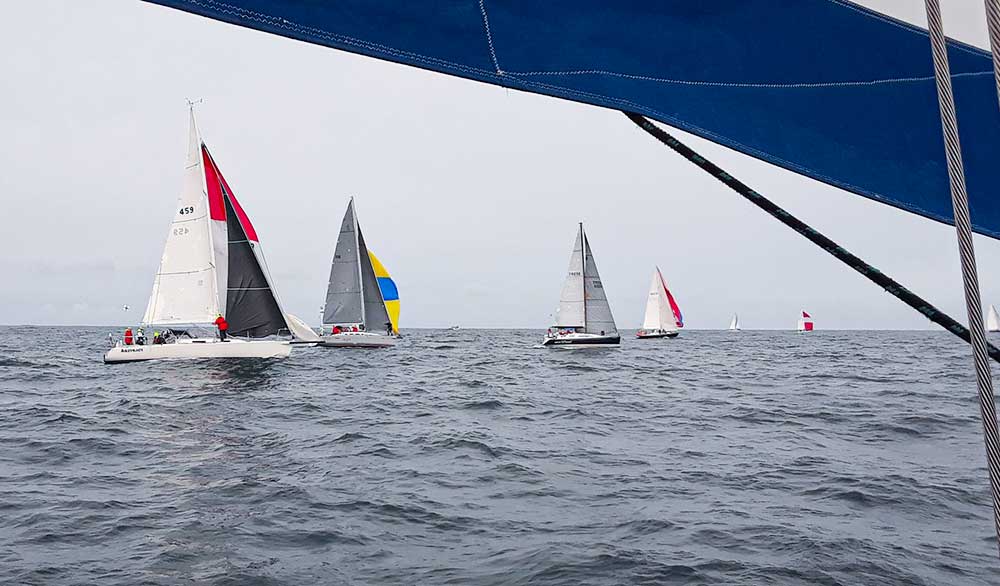
An hour after the start, the fleet got lifted, which had us putting up our spinnaker. The fleet was making good progress up the coast. When parallel to Ocean Park, the fleet jibed and headed offshore, looking for more wind. By late afternoon on day one, everyone was spread out from 10 to 20 miles offshore, and were abreast of Grays Harbor. Rage was still in front, followed by J/121 Riva, J/120 Jugo, and J/105 Abstract. The rest of the fleet was close behind.
As the light of day was decreasing, the wind strength was increasing. We took down our spinnaker. After midnight, the wind really started honking. Our apparent wind was over 30 knots at times. With full canvas up, each wave threatened to broach the boat. The off-watch crew was called on deck to double-reef the main, and furl the headsail about half-way. This brought the boat back under control.
A little after midnight, Rage rounded Cape Flattery and headed for the finish line in Port Angeles, averaging more than 12 knots over those 10.5 hours. The next PHRF race boat made their way into the Strait of Juan de Fuca shortly after 4 a.m. We managed to make it to the turning mark in just under 24 hours. The last boat rounded around noon on day two.
The bulk of the boats in the fleet were met with strong adverse ebb currents after entering the strait. Most stayed along the Washington coast trying to get current relief. A few boats opted to fight the current in the middle of the strait.
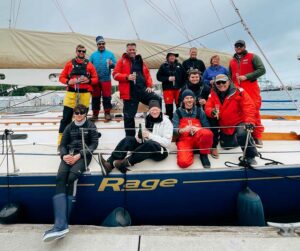
The wind fizzled as the fleet sailed closer and closer to the finish. The light air caused a few boats to find themselves drifting past the finish line, with the now flooding tide. Glad we were in the cruising class, because we were allowed to motor for a maximum of 4 hours, which helped us pass a few PHRF boats near the finish!
Rage finished first at 09:54 a.m. on Saturday, sailing the course in less than 24 hours. The next finisher, J/105 Free Bowl of Soup, finished a little less than 9 hours behind Rage. We finished at 9:40 p.m. on day two. The last boat to complete the entire course was the Cal 34 Soufflé, another cruising class boat.
The race winners were: Rage (Division A also the first overall winner), C&C 115 Fortuna (Division B), Bavaria 40 Syrena (Division C), Beneteau 393 Equilibrium (Division D), and Nordic Sun II in the cruising class. Lastly, the Chris White 48 catamaran, Presto, deserves special recognition for being the first ever multihull to compete in the PNW Offshore race — they won the multihull division. Hats off to the rest of the race boats and crew members for competing in this crazy and challenging offshore event.
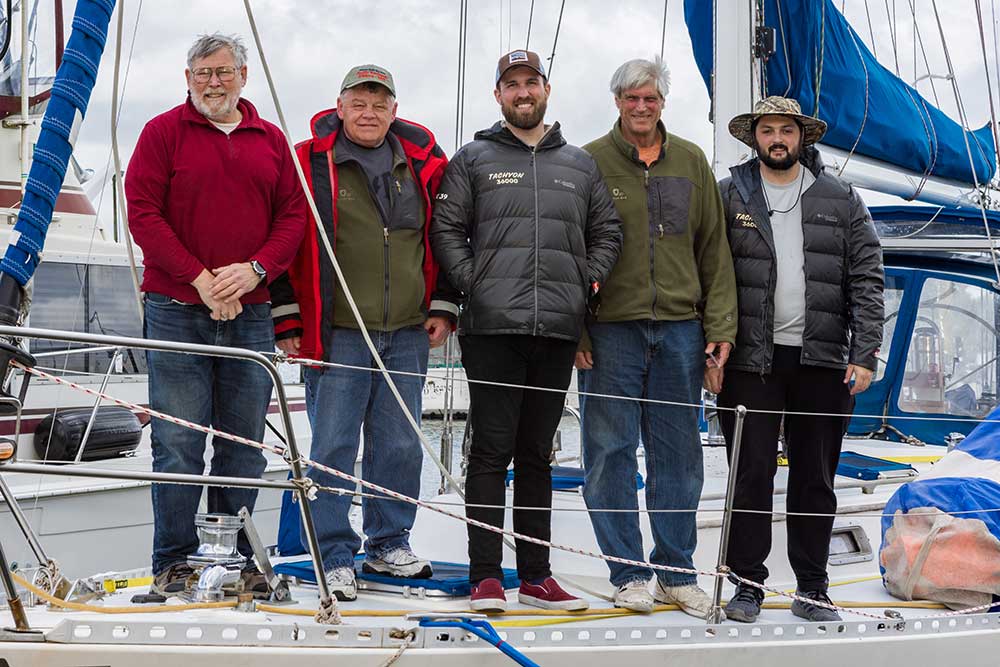
The Ilwaco Merchant Association offered fantastic pre-race hospitality, by providing snacks and drinks for participants. They even opened up normally closed restaurants, so racers had places to eat. This was especially appreciated given the fleet had to spend an extra day at the dock due to the postponement.
I can’t say enough about the race organizers. They did a fantastic job keeping the racers safe by postponing the race on Thursday. They also provided hot towels and champagne to each race boat as they came into the inspection dock in Port Angeles.
Greg Larsen
Cruiser/Racer with a lifetime of sailing experience, Greg and his family have been cruising the waters of the Salish Sea from Olympia to Alaska for decades.

